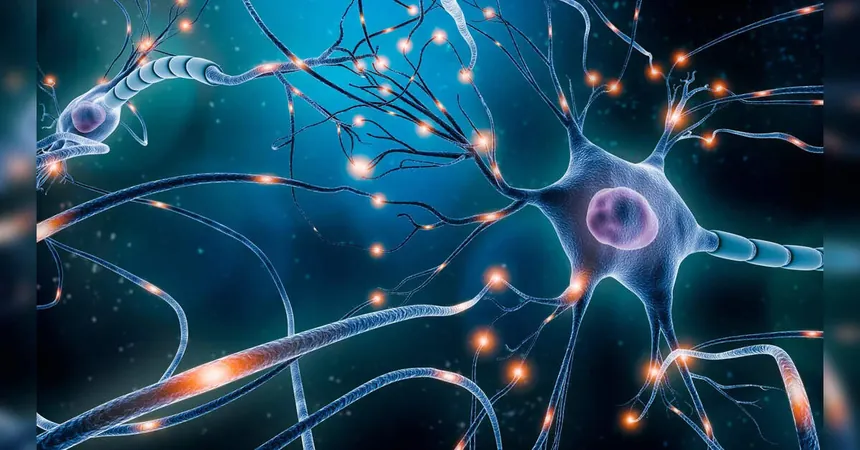
Revolutionary Discovery: Adult Brain Cells Continue to Form in Late Adulthood!
2025-07-05
Author: Ming
Groundbreaking Research Uncovers Neurogenesis in Adults
A groundbreaking study from Sweden has revealed that human brain cells, specifically neurons, can continue to form well into late adulthood. This discovery, centered around the hippocampus—crucial for memory—highlights the remarkable adaptability of the human brain.
The Science of Neurogenesis
Neurogenesis, the process of creating new neurons, has long been believed to persist throughout one’s life, albeit at a declining rate as we age. Yet, the extent and significance of this phenomenon have been shrouded in debate. Researchers at the famed Karolinska Institutet have now identified the elusive 'neural progenitor cells'—the precursors to new neurons—validating that neuron formation continues in the adult brain.
Innovative Research Methods Lead to New Insights
The team applied cutting-edge carbon dating techniques to analyze DNA from human brain tissue, sourced from a wide range of ages, from infancy up to 78. Their results revealed that the progenitor cells present in adult humans share similarities with those in other mammals like mice, pigs, and monkeys, though specific gene activity varies.
Individual Differences in Adult Neurogenesis
Interestingly, the study found significant variations among individuals; some adults boasted a plethora of neural progenitor cells, while others exhibited a scarcity. Professor Jonas Frisen, who led the research, emphasized its importance in unraveling the complexities of the human brain's functioning and evolution over time.
Implications for Psychiatry and Neurodegenerative Disorders
This research not only enhances our understanding of the brain's capabilities but also opens new avenues for developing regenerative treatments for neurodegenerative and psychiatric disorders. These conditions often involve debilitating neuron loss, particularly affecting the hippocampus, which worsens with age.
Harnessing Technology for Deeper Insights
In their investigation, the researchers employed a sophisticated technique known as 'single-nucleus RNA sequencing,' which examines gene activity within individual cell nuclei. By combining this with machine learning, they effectively mapped the stages of neuronal development, identifying proliferating progenitor cells even in adults.
A Pivotal Step Forward in Brain Research
This study provides critical insights into adult neurogenesis within the human hippocampus, evidence of which is scientifically and medically significant. It could pave the way for breakthroughs in treating various cognitive diseases that affect a large portion of our aging population. The journey to understanding how our brains adapt and evolve continues, holding the promise of enhanced mental health in the future.




 Brasil (PT)
Brasil (PT)
 Canada (EN)
Canada (EN)
 Chile (ES)
Chile (ES)
 Česko (CS)
Česko (CS)
 대한민국 (KO)
대한민국 (KO)
 España (ES)
España (ES)
 France (FR)
France (FR)
 Hong Kong (EN)
Hong Kong (EN)
 Italia (IT)
Italia (IT)
 日本 (JA)
日本 (JA)
 Magyarország (HU)
Magyarország (HU)
 Norge (NO)
Norge (NO)
 Polska (PL)
Polska (PL)
 Schweiz (DE)
Schweiz (DE)
 Singapore (EN)
Singapore (EN)
 Sverige (SV)
Sverige (SV)
 Suomi (FI)
Suomi (FI)
 Türkiye (TR)
Türkiye (TR)
 الإمارات العربية المتحدة (AR)
الإمارات العربية المتحدة (AR)